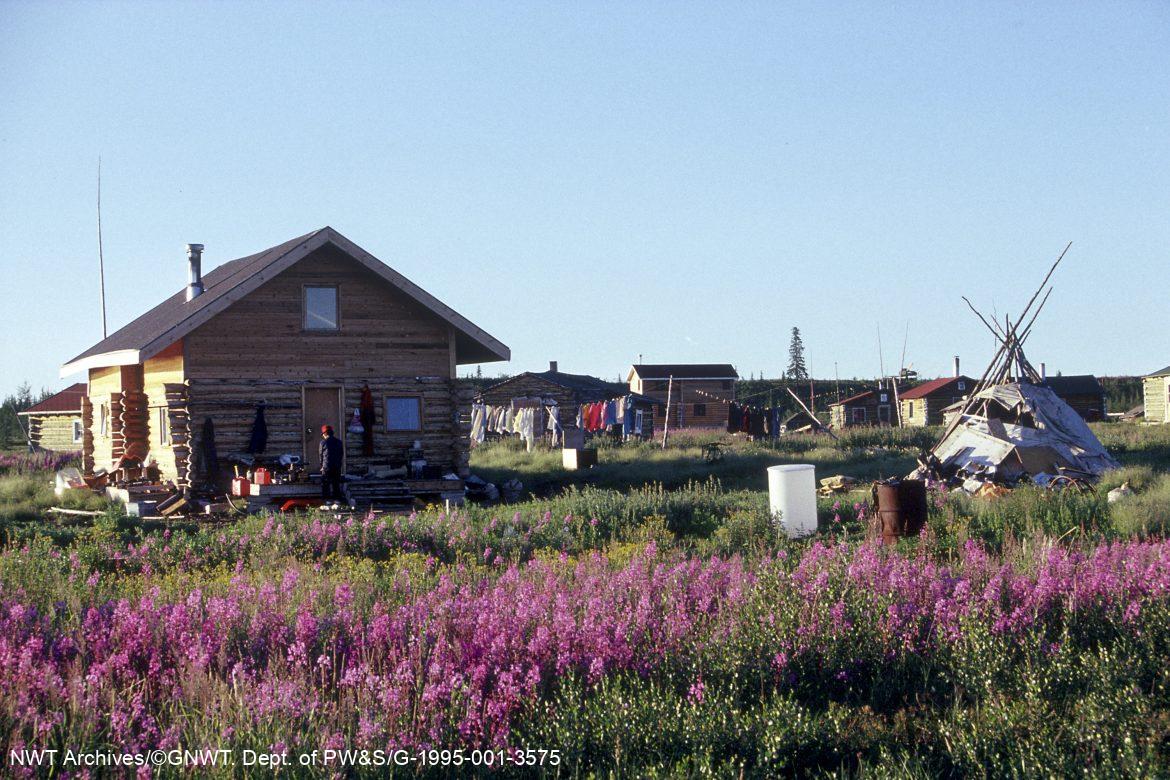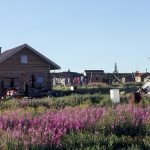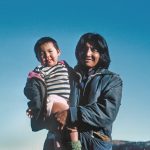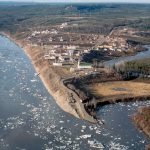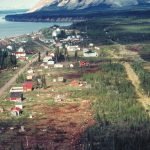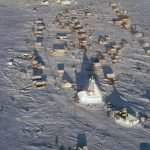1994
Sahtu Land Claim
In July of 1993, the 2400 Dene and Métis from the Northwest Territories communities of Tulita, Norman Wells, Fort Good Hope, Délįne and Colville Lake voted to accept the terms of a comprehensive land claim agreement. This agreement covered lands within the Sahtu Settlement Area adjacent to Great Bear Lake and along the Mackenzie River west of Great Bear Lake.
In September 1991, after the Dene/Métis Comprehensive Land Claim failed, the Sahtu Tribal Council began regional land claim negotiations with the Federal Government. An Agreement-in-Principle (AIP) was quickly reached based on the previous Dene/Métis negotiations.
For some Dene and Métis, terms of the AIP were unacceptable; they claimed Dene/Métis were giving up too much. During the final week of the ratification vote, Sahtu leaders launched an information campaign to convince voters that the deal was good. Chief Everett Kakfwi of Fort Good Hope is quoted as saying, “Some people are dreaming, saying that we can get a better deal. But let’s wake up. We know we have to share lands with the rest of Canada.”
The terms of the land claim agreement received a substantial 85% approval in the July 1993 ratification vote held in the Sahtu communities. A Comprehensive Land Claim Agreement was signed in September 1993, and final Parliamentary approval was given on June 23, 1994.
Through this land claim agreement, the Sahtu Dene and Métis received legal title to 39,624 square kilometres of land, an area comparable in size to Vancouver Island. The agreement also included title, plus subsurface rights, to an additional 1,813 square kilometres and financial compensation of $75 million (in 1990 dollars) paid out over 15 years. The Sahtu Dene and Métis will also receive a share of royalties from resource development in the Mackenzie valley.
For many Sahtu Dene and Métis, affirmation of their Indigenous Right to hunt and fish was an essential part of the Sahtu Dene and Métis Land Claim Agreement. The Sahtu Dene and Métis were also “guaranteed participation in institutions of public government (IPGs) for renewable resource management, land use planning, and land and water use within the SSA [Sahtu Settlement Area], and environmental impact assessment and review within the Mackenzie Valley.”
